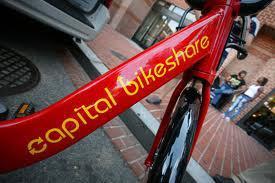 Several weeks ago I wrote about Alta Bicycle Share, a company that manages the bike share process from helping municipalities prepare initial bike sharing proposals to repositioning bikes once the program is up and running. Alta runs the Capital Bikeshare program that has numerous stations in the area where I live. After writing the article on Alta Bicycle Share, I started to pay more attention to what the Capital Bikeshare bikes were used for and whether or not they were really a popular choice of transportation. In addition, it was recently announced that Capital Bikeshare was expanding to Alexandria, Virginia and that Arlington County planned to add 30 additional bike stations to the 44 that already exist in the county. This further piqued my interest.
Several weeks ago I wrote about Alta Bicycle Share, a company that manages the bike share process from helping municipalities prepare initial bike sharing proposals to repositioning bikes once the program is up and running. Alta runs the Capital Bikeshare program that has numerous stations in the area where I live. After writing the article on Alta Bicycle Share, I started to pay more attention to what the Capital Bikeshare bikes were used for and whether or not they were really a popular choice of transportation. In addition, it was recently announced that Capital Bikeshare was expanding to Alexandria, Virginia and that Arlington County planned to add 30 additional bike stations to the 44 that already exist in the county. This further piqued my interest.
First, a quick recap of the costs of renting a bike. Capital Bikeshare has five membership options. Casual riders may purchase a 24-hour membership ($7) or a 3-day membership ($15) at any bike station. Riders may also sign up online for a monthly ($25) or annual ($75) membership. Any rider may take unlimited trips of 30 minutes or less, as measured from the time the bike is withdrawn from a dock to the time it is returned; however, users are charged for each additional half-hour on a scale that rises from $1.50 to $8.00. This pricing structure is designed to encourage short trips from place to place instead of longer leisure rides.
One interesting use for the bikes that had not occurred to me until I started paying closer attention is that because trips of 30 minutes or less are free, the program allows public-transportation users to travel the first mile or the last mile to the Metro stop or bus station. This has the obvious advantage of increasing the use of public transportation and taking cars off the road. In addition, since the bike stations are generally situated in fairly dense urban areas, many people are within easy walking distance of them so the bikes can also be used for quick trips to the grocery store etc.
Tourists seem to be taking advantage of the rental bikes as well. It is a fairly common sight now at any of the major tourist attractions in DC to see people on the red Capital Bikeshare bikes.
One downside of the popularity and expansion of the bike sharing network is that accidents involving cars and bikes are becoming more common. Arlington County is working on improving or adding dedicated bike lanes to many of its main roads to help alleviate this problem.
Overall, the bikes seem to be catching on. They are popular with commuters as a first/last mile option as well as tourists wanting to see the sights of the nation’s capital. In what is probably a first in the bike sharing world, in a recent triathlon in DC one of the participants used a Capital Bikeshare bike to complete the cycling portion of the race. Given that the bike share bikes are kind of heavy and built more to last than for speed, it wouldn’t be my first choice but does show how Capital Bikeshare is growing all the more popular.
Disclaimer: This article is intended to be informative and should not be construed as personalized investment personalized advice. You are responsible for your own investment decisions.
Source: Capital Bikeshare

